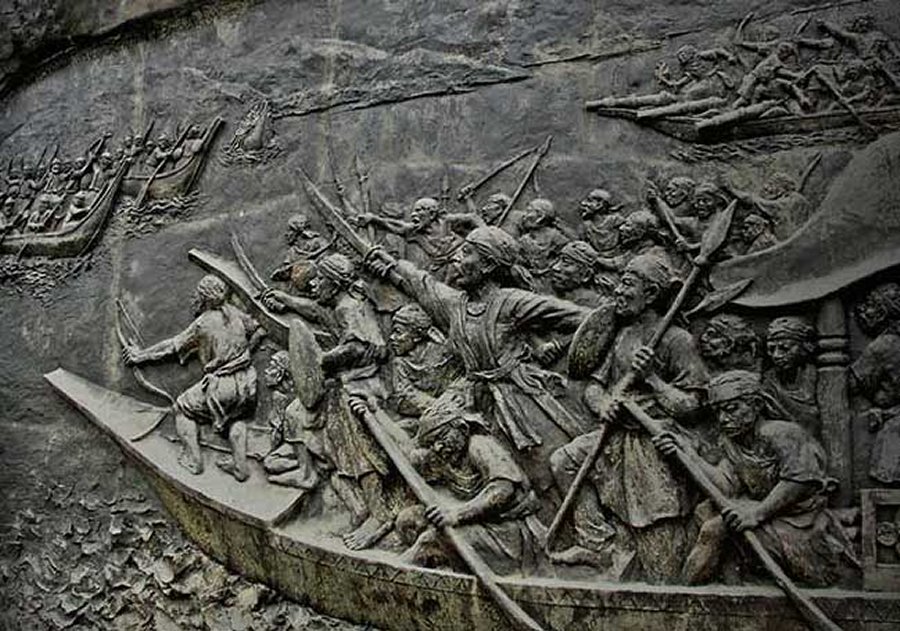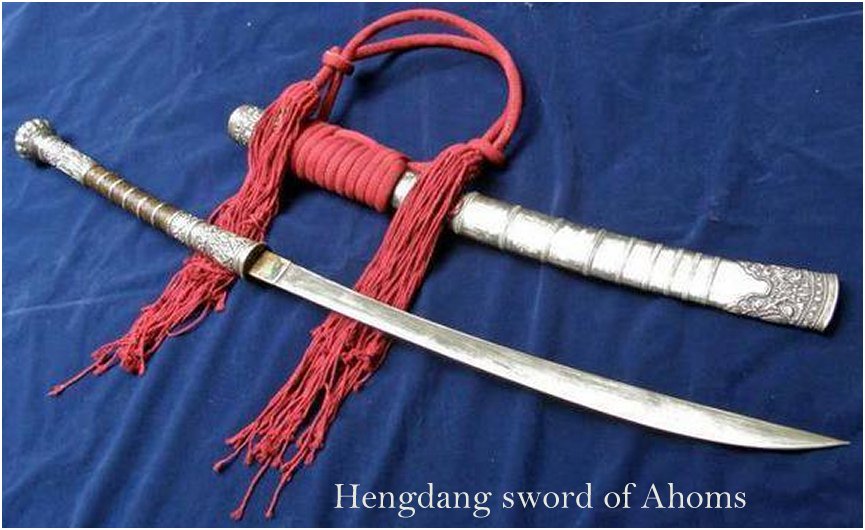Lachit Bhorphukan: Hero From Assam Among Famous Warriors Who Stopped Mughals From Conquering Northeast India
A. Sutherland - AncientPages.com - Lachit Bhorphukan was a great warrior from Assam, where he was a commander of the army of the Ahom Kingdom. Lachit bravely defeated the powerful Mughal Army, using some of the riskiest strategies, ever.
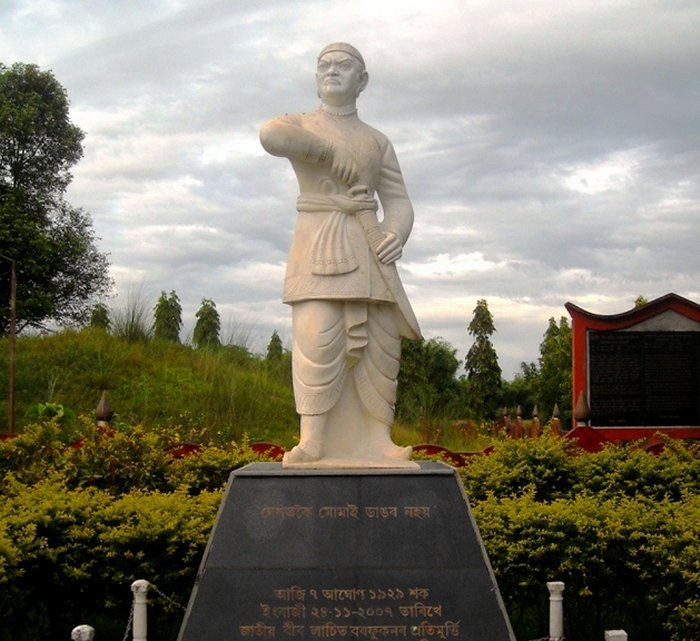
His name became particularly famous when Lachit Bhorphukan recovered Gauhati, the largest city of Assam and Northeastern India, from the Mughals in 1667 and was presented with the Hengdang, a single-edged gold (silver or wood) plated sword. Image source
In the mid-1600s, the Mughal Empire was at the peak of its glory and extended over large parts of the Indian subcontinent and Afghanistan; it was the second largest to have existed in the Indian subcontinent, covering an impressive area of 4 million square kilometers, after the Maurya Empire, which spanned 5 million square kilometers.
A great military leader of medieval India and son of commander-in-Chief of Ahom forces, Lachit was educated in Hindu, Indian scripture, military skills, and other disciplines necessary for him as a nobleman.
From his father, Lachit had inherited involvement, a sense of duty, and loyalty. He was now occupied with the preparations for the war.
The Mughals’ force and pacification dominated over a large part of India and in consequence, the country began to experience a series of revolutions and uprisings.
Now it was time to liberate Guwahati from Mughal-occupation. Lachit Bhorphukan was selected to lead the forces of the Kingdom of Ahom to liberate Guwahati from the Mughal occupation.
He raised the army and preparations were completed by the summer of 1667. He knew the enemy and he knew that his army had no chance to fight on the plains. He chose the forested and hilly terrain just outside Guwahati, as his battlefield, where his men had an advantage over the Mughals.
It was still time to made strategic preparations to the battle that took place on Brahmaputra River, near Saraighat, Guwahati. At the crucial moment in this decisive battle, the Mughals’ army was about to land at Andharubali, where Lachit had his headquarters.
He immediately sent orders to all the land and naval forces to attack. He also ordered his boats to be prepared for him and forced himself from the sickbed and on to the boats, (at that time he was very ill). He firmly stated that regardless of what happens, he will never desert his country. His war-boats immediately headed toward the naval battle and along with all Ahom warships smashed into the Mughal warships.
The Mughal admiral was killed and the Mughals suffered the loss of three top-ranking officers and about 4000 dead.
Guwahati, of which history and myths go back several thousands of years, was recovered by Lachit, who successfully defended it against the Mughal forces.
The day of the decisive battle - one of the worst defeats the Mughal Army would ever face - is not known for certain, only that it happened in the middle of March 1671.
The battle would be remembered for the victory of a much smaller Ahom army over the mighty Mughal Army, through a combination of tactical brilliance, guerilla warfare, and intelligence gathering.
Lachit Borphukan was among many other brave kings and generals who managed to keep the North East of India free. The victory in Saraighat Battle immortalized the brave warrior who was presented with the Hengdang, a single-edged gold plated sword.
However, Lachit Borphukan never recovered from his illness and died a year later in April 1672.
Written by – A. Sutherland AncientPages.com Staff Writer
Copyright © AncientPages.com All rights reserved. This material may not be published, broadcast, rewritten or redistributed in whole or part without the express written permission of AncientPages.com
Expand for referencesMore From Ancient Pages
-
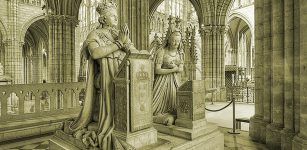 On This Day In History: King Louis XVI Of France Was Formally Arrested And Declared An Enemy Of The People – On August 13, 1792
News | Aug 13, 2016
On This Day In History: King Louis XVI Of France Was Formally Arrested And Declared An Enemy Of The People – On August 13, 1792
News | Aug 13, 2016 -
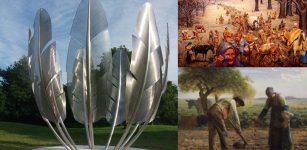 Kindred Spirits: Why Did The Irish Build A Monument In Honor Of Native Americans?
Ancient History Facts | Oct 22, 2016
Kindred Spirits: Why Did The Irish Build A Monument In Honor Of Native Americans?
Ancient History Facts | Oct 22, 2016 -
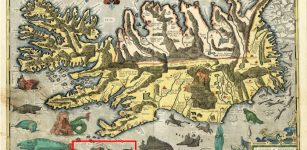 Ancient Manuscripts About Sea Monsters Solve An Ocean Mystery
News | Mar 1, 2023
Ancient Manuscripts About Sea Monsters Solve An Ocean Mystery
News | Mar 1, 2023 -
 Gengen Wer – Goose God Who Guarded The Celestial Egg Containing The Life Force In Egyptian Beliefs
Featured Stories | Apr 22, 2021
Gengen Wer – Goose God Who Guarded The Celestial Egg Containing The Life Force In Egyptian Beliefs
Featured Stories | Apr 22, 2021 -
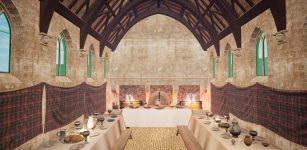 Lost Medieval Home Of The Lords Of The Isles – Reconstructed Virtually
Archaeology | May 29, 2019
Lost Medieval Home Of The Lords Of The Isles – Reconstructed Virtually
Archaeology | May 29, 2019 -
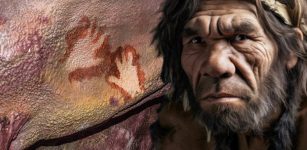 World’s Oldest Hand Stencils Were Made By Neanderthals In The Maltravieso Cave 66,000 Years Ago
Archaeology | Dec 9, 2024
World’s Oldest Hand Stencils Were Made By Neanderthals In The Maltravieso Cave 66,000 Years Ago
Archaeology | Dec 9, 2024 -
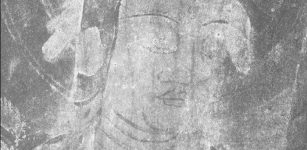 1,300-Year-Old Paintings Depicting Eight Buddhist Saints Revealed By Infrared Cameras
News | Oct 1, 2020
1,300-Year-Old Paintings Depicting Eight Buddhist Saints Revealed By Infrared Cameras
News | Oct 1, 2020 -
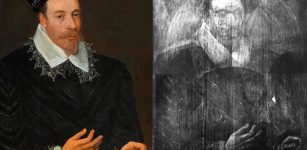 X-Ray Reveal Ghostly Portrait Of Mary Queen Of Scots Hidden Underneath 16th Century Painting
Archaeology | Nov 3, 2017
X-Ray Reveal Ghostly Portrait Of Mary Queen Of Scots Hidden Underneath 16th Century Painting
Archaeology | Nov 3, 2017 -
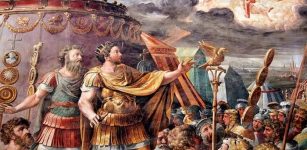 How The Strange Dream Of Roman Emperor Constantine Changed History
Ancient History Facts | Sep 29, 2017
How The Strange Dream Of Roman Emperor Constantine Changed History
Ancient History Facts | Sep 29, 2017 -
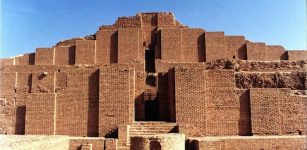 Chogha Zanbil: Huge Ancient Still Existing Ziggurat Dedicated To God Inshushinak
Featured Stories | Mar 10, 2016
Chogha Zanbil: Huge Ancient Still Existing Ziggurat Dedicated To God Inshushinak
Featured Stories | Mar 10, 2016 -
 Viking Grave And Sword Discovered In Norwegian Garden
Archaeology | Jul 3, 2023
Viking Grave And Sword Discovered In Norwegian Garden
Archaeology | Jul 3, 2023 -
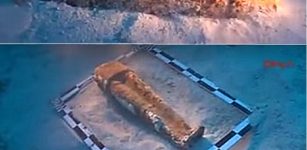 2,700-Year-Old Ceramic Sculpture Of Goddess Found In Aegean Sea
Archaeology | Feb 28, 2017
2,700-Year-Old Ceramic Sculpture Of Goddess Found In Aegean Sea
Archaeology | Feb 28, 2017 -
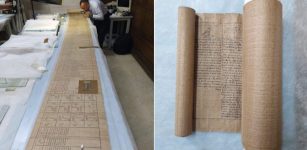 Never-Before-Seen 16 Meters Long Ancient Egyptian Papyrus Unveiled To The Public
Artifacts | Feb 21, 2023
Never-Before-Seen 16 Meters Long Ancient Egyptian Papyrus Unveiled To The Public
Artifacts | Feb 21, 2023 -
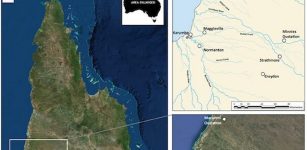 Isotope Analysis Helps Tell The Stories Of Aboriginal People Living Under Early Colonial Expansion
Archaeology | May 2, 2023
Isotope Analysis Helps Tell The Stories Of Aboriginal People Living Under Early Colonial Expansion
Archaeology | May 2, 2023 -
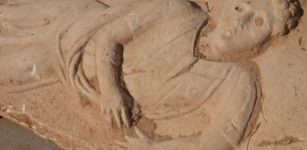 Unique 1,800-Year-Old Stone Sarcophagus Exposed In Ashkelon Building Site
Civilizations | Sep 6, 2015
Unique 1,800-Year-Old Stone Sarcophagus Exposed In Ashkelon Building Site
Civilizations | Sep 6, 2015 -
 Unique Early Alemannic Chamber Grave Discovered In Gerstetten, Germany
Archaeology | Sep 20, 2024
Unique Early Alemannic Chamber Grave Discovered In Gerstetten, Germany
Archaeology | Sep 20, 2024 -
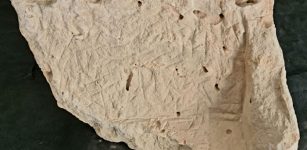 3,500-Year-Old Stone Inscribed With A Curse Against The City’s Governor Discovered In Jerusalem
Archaeology | Jul 13, 2022
3,500-Year-Old Stone Inscribed With A Curse Against The City’s Governor Discovered In Jerusalem
Archaeology | Jul 13, 2022 -
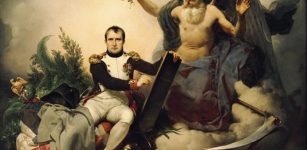 Napoleonic Code: Why Was One Of The Most Influential Civil Codes Flawed?
Ancient History Facts | May 16, 2020
Napoleonic Code: Why Was One Of The Most Influential Civil Codes Flawed?
Ancient History Facts | May 16, 2020 -
 Dozens Of Ancient Villages Discovered In British Columbia – The Pit Houses ‘Older Than The Pyramids’!
Archaeology | Apr 9, 2025
Dozens Of Ancient Villages Discovered In British Columbia – The Pit Houses ‘Older Than The Pyramids’!
Archaeology | Apr 9, 2025 -
 Amazing Ancient Roman Marble Floor Found In The Underwater City Of Baiae, Italy
Archaeology | Aug 5, 2024
Amazing Ancient Roman Marble Floor Found In The Underwater City Of Baiae, Italy
Archaeology | Aug 5, 2024

